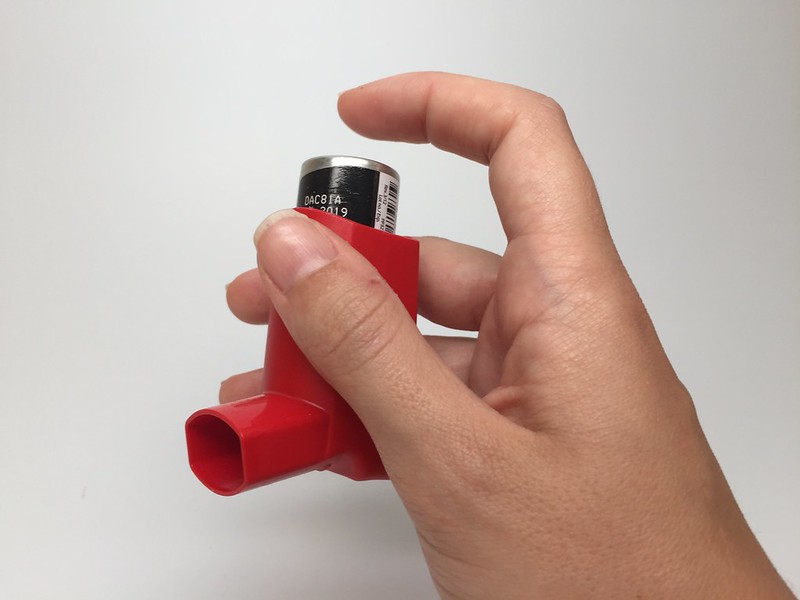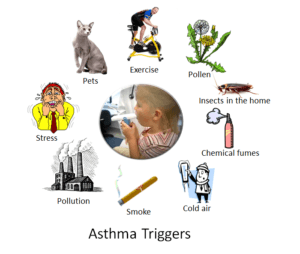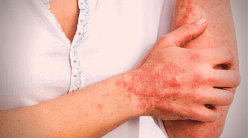What Is Asthma About

Asthma is a chronic, long-term inflammatory disease of the airways, the tubes that carry air into the lungs. These tubes get inflamed, which causes the narrowing of the airways so the air can’t pass thru freely. When this happens, it causes wheezing and breathlessness, also known as asthma attacks.
Signs And Symptoms Of Asthma
Symptoms include episodes of wheezing, coughing, chest tightness, and shortness of breath.
What Are The Causes Of Asthma

Asthma is thought to be caused by a combination of genetic and environmental factors. Environmental factors include exposure to air pollution and allergens( dust mites, mold, animal dander, cockroaches, pollen,…). Exposure to formaldehyde may be a trigger for asthma. Phthalates in certain types of PVC are also associated with asthma.
Smoking during pregnancy triggers a greater risk of asthma symptoms in children.
How To Treat Asthma
Asthma can not be cured, but its symptoms can be prevented by avoiding triggers, such as allergens and irritants, and by the use of corticosteroids, natural remedies, and breathing exercises. In severe cases, patients receive intravenous corticosteroids and magnesium sulfate. In these cases, hospitalization may be required.
Who Most Likely Get Asthma
It affects people of all ages, but in most cases, it begins in childhood. 358 million people globally had asthma in 2015. Compared to 1990, when 183 million people had asthma, this increase is significant. Over half of cases in children occur in areas with air quality below EPA standards.
Wanna Learn More About Alternative Asthma Remedies? Click Here
Reference: Wikipedia
Disclaimer: All information presented on this website is for informational purposes only. These statements have not been evaluated by the Food and Drug Administration. This website is not intended for diagnosis, treatment, treatment or prevention of disease and is not intended for substitution treatment. This information is not meant to cover all possible uses, precautions, interactions or adverse effects. This information may not fit your specific health circumstances. Never delay or disregard seeking professional medical advice from your doctor or other qualified healthcare providers because of something you have read on whatcure.com. Please seek the advice of a healthcare professional for your specific health concerns.







